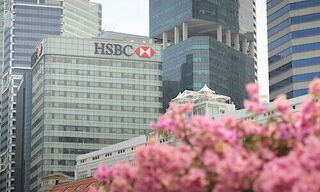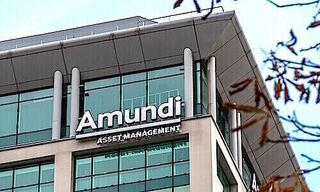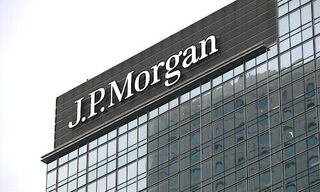The Year of the Pig is likely to be a good one for the financial sector because the pig is a symbol of prosperity. However, pigs need to be watched because they are greedy, Michel Longhini writes on finews.first.
finews.first is a forum for renowned authors who specialize in economic and financial topics. The publishers of finews.com are responsible for the selection.
According to popular belief in China, the year that has just begun – the Year of the Pig – is likely to be a good one for the financial sector because the pig is a symbol of prosperity. However, pigs need to be watched because they are greedy, and greed can be damaging if it goes too far. We should be confident, then, but not overly so.
This, roughly speaking, describes the current attitude of the U.S. Federal Reserve (Fed). Its tone has changed markedly now that patience has become the watchword of its chairman Jerome Powell. Whereas two or three further rate hikes were still in the pipeline a few weeks ago, the Fed is now indicating that it wants to pause its monetary tightening.
«Such news inevitably raises questions about how long the growth phase will last»
This shift – from a very positive scenario to a more «wait-and-see» stance, in Powell’s words – has caused conditions in the bond market to ease substantially, even as jobs are still being created at a record rate. U.S. 10-year yields have fallen from 3.25 percent in November to 2.55 percent today. The Fed may well proclaim its independence loud and clear, but it is not unreasonable to suspect that President Donald Trump’s repeated harsh criticism of the central bank has helped cause its change of tone. The same could be said of the economic disruption caused by the shutdown, which paralyzed a large portion of the U.S. administration for a record 36 days.
Doubts about the prospects of major tech companies, which surfaced in the autumn, have been even more significant since the business levels of these international groups can be regarded as a reliable indicator of the global growth trend. Apple recently warned about its profits, and such news inevitably raises questions about how long the growth phase will last.
«The scenario of a soft landing in the U.S. and China should ensure a degree of stability»
After panicking in late 2018, investors are pinning fresh hopes on the Fed’s sudden restraint and progress in talks between Washington and Beijing to resolve their trade dispute between now and March. The violent market decline in December 2018 involved excessive selling that has now been partly corrected, and the S&P 500 has had its best start to a year for more than three decades. Overall, between the end of January 2018 and the end of January 2019, the Dow Jones was down only 4.4 percent and the Nasdaq down only 1.75 percent.
The relatively benign scenario of a soft landing in the U.S. and China should ensure a degree of stability in the financial markets. This is especially true since valuations are now less excessive following the corrections seen across all asset classes in the second half of 2018.
On a historical comparison, the Nasdaq’s price/earnings (P/E) ratio remains high, at 34 in early February. However, it remains well below its March 2018 peak of 52 and its 12-month average of 42. The Dow Jones P/E ratio, which was 21 a year ago, has also regained some breathing space, having fallen to 16.3.
«China’s stock market has been one of the best performers since the start of the year»
History has shown that steering an economic slowdown is a highly delicate operation. As a result, a cautious approach is required in the current transitional period, during which hopes of continued growth are coming up against a concern that the current cycle is ending. Given the current uncertainty, major economic indicators will be crucial in tipping the scales one way or the other. Although oil prices have surged again in early 2019, they are less useful as an indicator because the increase is largely down to the crisis in Venezuela and OPEC policy.
However, investors will have to keep a close eye on U.S. and Chinese statistics, as well as on corporate earnings announcements. Paradoxically, while Chinese exports could suffer badly from the trade dispute, China could also be the main source of good news. Chinese stocks, particularly in the tech sector, have rallied strongly and China’s stock market has been one of the best performers since the start of the year.
«Donald Trump's arrival has changed all that»
In any event, the current situation calls for an asymmetric approach to portfolio management. Equity exposure must be maintained, but accompanied by protection achieved through derivative and structured products in order to guard against possible market downturns. Investors will also have to deal with a phenomenon that they have become unaccustomed to seeing, i.e. volatility. This is because politics has regained the upper hand over the economic and financial sphere. For years, the influence of politics over the financial markets had seemed limited, but the arrival of Donald Trump has changed all that.
Volatility is back with a vengeance, which is one of the consequences of the U.S. president’s trade offensive. The president’s determination to assert his authority is also shown by his move to call the Fed’s independence into question. Volatility is also affecting Europe. A number of major deadlines are approaching (Brexit, European elections etc.) and many governments are under pressure, which means that we are likely to see decisions that are more clear-cut but, more importantly, less predictable.
Michel Longhini has been the head of private banking at Union Bancaire Privée since 2010. Previously, he was head of Asia for BNP Paribas's wealth arm from 2003 to 2008, then global head of BNP Paribas international wealth management in Paris. He is an MBA graduate of Lyon Business School and has 30 years of private banking experience.
Previous contributors: Rudi Bogni, Peter Kurer, Oliver Berger, Rolf Banz, Dieter Ruloff, Werner Vogt, Walter Wittmann, Alfred Mettler, Peter Hody, Robert Holzach, Craig Murray, David Zollinger, Arthur Bolliger, Beat Kappeler, Chris Rowe, Stefan Gerlach, Marc Lussy, Nuno Fernandes, Richard Egger, Maurice Pedergnana, Marco Bargel, Steve Hanke, Andreas Britt, Urs Schoettli, Ursula Finsterwald, Stefan Kreuzkamp, Oliver Bussmann, Michael Benz, Peter Hody, Albert Steck, Andreas Britt, Martin Dahinden, Thomas Fedier, Alfred Mettler, Brigitte Strebel, Peter Hody, Mirjam Staub-Bisang, Nicolas Roth, Thorsten Polleit, Kim Iskyan, Stephen Dover, Denise Kenyon-Rouvinez, Christian Dreyer, Kinan Khadam-Al-Jame, Robert Hemmi, Anton Affentranger, Yves Mirabaud, Katharina Bart, Frédéric Papp, Hans-Martin Kraus, Gerard Guerdat, Didier Saint-Georges, Mario Bassi, Stephen Thariyan, Dan Steinbock, Rino Borini, Bert Flossbach, Michael Hasenstab, Guido Schilling, Werner E. Rutsch, Dorte Bech Vizard, Adriano B. Lucatelli, Katharina Bart, Maya Bhandari, Jean Tirole, Hans Jakob Roth, Marco Martinelli, Beat Wittmann, Thomas Sutter, Tom King, Werner Peyer, Thomas Kupfer, Peter Kurer, Arturo Bris, Frederic Papp, James Syme, Dennis Larsen, Bernd Kramer, Ralph Ebert, Marionna Wegenstein, Armin Jans, Nicolas Roth, Hans Ulrich Jost, Patrick Hunger, Fabrizio Quirighetti, Claire Shaw, Peter Fanconi, Alex Wolf, Dan Steinbock, Patrick Scheurle, Sandro Occhilupo, Will Ballard, Michael Bornhaeusser, Nicholas Yeo, Claude-Alain Margelisch, Jean-François Hirschel, Jens Pongratz, Samuel Gerber, Philipp Weckherlin, Anne Richards, Michael Welti, Antoni Trenchev, Benoit Barbereau, Pascal R. Bersier, Shaul Lifshitz, Klaus Breiner, Ana Botín, Michel Longhini, Martin Gilbert, Jesper Koll, Ingo Rauser, Carlo Capaul, Claude Baumann, Markus Winkler, Konrad Hummler, Thomas Steinemann, Karin M. Klossek, Michael Welti, Christina Boeck, Michel Longhini, Guillaume Compeyron, Miro Zivkovic, Alexander F. Wagner, Eric Heymann, Christoph Sax, Felix Brem , Jochen Moebert, Jacques-Aurélien Marcireau, Peter Hody, Ursula Finsterwald, and Claudia Kraaz.


























